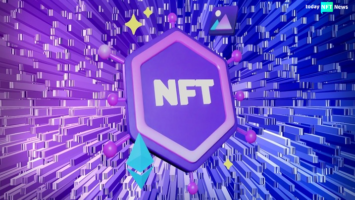SNEAK PEEK
- CEO Andy Bird hopes that commission on second-hand sales could help the company to make more revenue.
- Bird’s remarks point towards educational institutions looking at the riding craze of NFTs and metaverse as an opportunity to earn cash.
- Pearson’s move had faced criticism from the community.
Andy Bird, CEO of Pearson, a British multinational publishing and education company, aspires to allocate NFTs to digital textbooks to track the sales in a better way as well as catch revenue that was earlier lost in the secondhand market.
He believes that the technology can do wonders in generating commission for the company upon selling second-hand textbooks.
He shared that textbooks by Pearson are resold for up to seven times during their entire lifespan.
Pearson is exploring alternatives through blockchain to scrap revenue from sales, while the company is striving to make the best from the perks associated with the metaverse.
Bird further said that they have a dedicated team working on the metaverse and exploring how it can help Pearson.
Since the market cap of the virtual world is expected to surpass $50 billion by 2026, stepping into the metaverse could be helpful.
Unfortunately, in its approach to use NFTs, the company has faced criticism from the community, as it believes the company’s plans regarding NFTs are not utilizing NFT technology in real life.
Ian Cutress, a technology analyst posted a Tweet that read that NFT is nothing but a buzzword in the whole scenario and Pearson’s reference to NFT is merely a code for which second-hand customers will pay a fee so as to activate the digital books they own.
Is this really NFTs, or is this Pearson just allowing people to bundle a book into a code, sell the code? That’s not an NFT. NFT is just a buzzword here. Note that in order to earn, Pearson charge the person who buys the code a $10 reactivation fee. EA tried something similar. https://t.co/C87uejdXNa
— 𝐷𝑟. 𝐼𝑎𝑛 𝐶𝑢𝑡𝑟𝑒𝑠𝑠 (@IanCutress) August 2, 2022
Earning a revenue of $4.2 billion in 2021, Pearson is among the world’s largest publishers. In 2022, the company is on its way to exceed the mark, thanks to its revenue of $2.2 billion in the first-half with profits up by 14% to $208.7 million.









